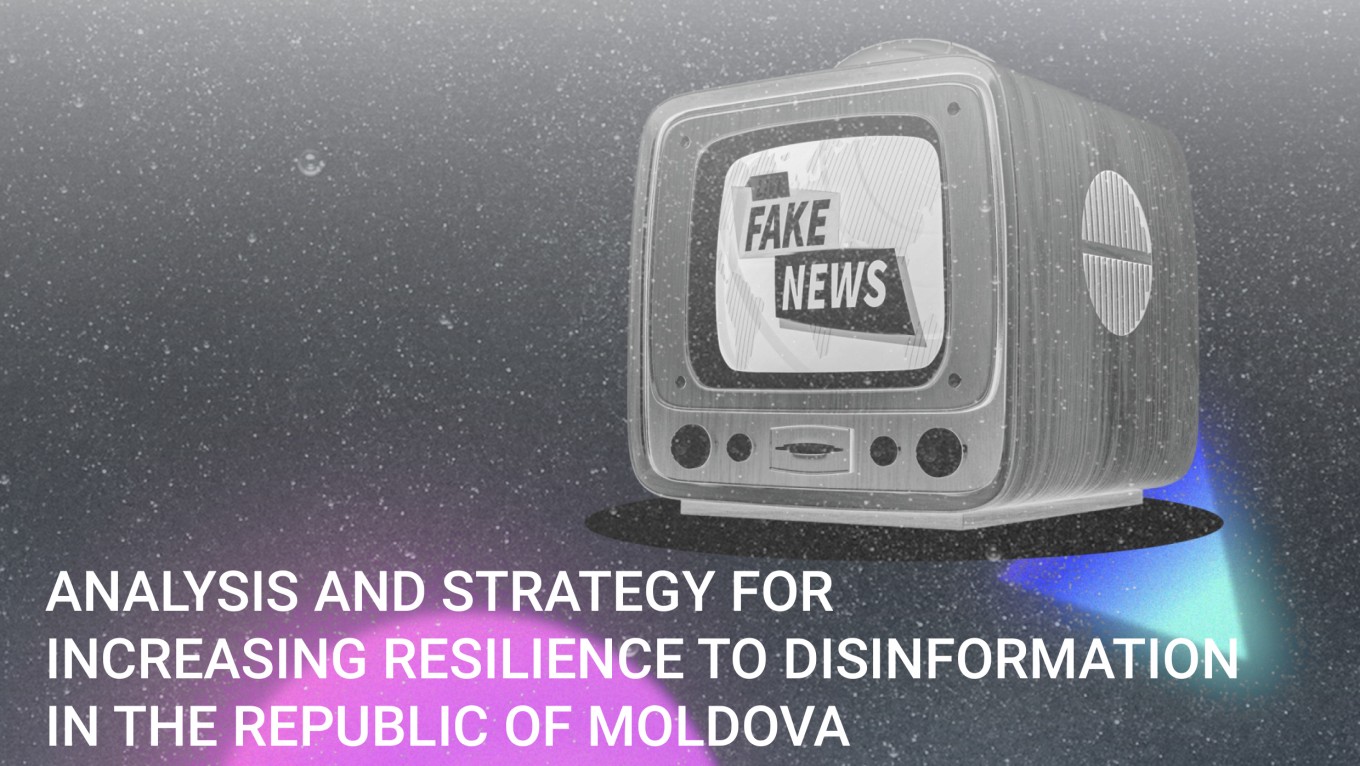Study – Strengthening resilience against disinformation in the Republic of Moldova

Executive summary
The inforMD project has developed a state-of-the-art analysis of disinformation as well as an awareness-raising strategy aimed at improving the Republic of Moldova’s resistance to disinformation and developing further critical thinking among the broader civil society. This analysis has two main objectives. The first objective is to present an overview of the current impact and trends of disinformation as well as to analyse the existing legal and institutional framework against disinformation.
The second objective is to develop a list of recommendations for policy changes, legislative amendments, and institutional transformations to strengthen the resilience of the country and its society to disinformation. The paper also proposes a set of advocacy activities that will empower civil society organisations (CSOs), political actors, and other stakeholders to promote the necessary policies aimed at improving the country’s resilience to disinformation.
The first chapter contains the introduction and background information about disinformation in the Republic of Moldova: Why is (political) propaganda so deeply rooted in the country? What are the underlying political and geopolitical cleavages?
The second chapter of the study reflects on the impact of disinformation in the Republic of Moldova and contains an analysis of data on disinformation trends. A classification of types of disinformation, propaganda, and fake news is made; current practices in dealing with disinformation – both positive and negative – are also indicated. This part also includes an analysis of the media landscape and the parties involved.
The third chapter contains an overview of the legal and institutional framework for resilience to disinformation and for the country’s information security. In addition, this part includes an analysis of the general legislative framework, media legislation, the responsibility of institutions, as well as strategies and policy documents on combating disinformation.
The fourth chapter provides recommendations for improving the legal framework and concrete suggestions regarding the institutional framework, which, among other things, aims at increasing accountability and improving the efficiency of the Audiovisual Council, the autonomous public authority regulating the public and private audiovisual media in the Republic of Moldova. This chapter also includes recommendations for making CSOs’ efforts to combat disinformation more efficient, including regarding the implementation of specific projects, best practices, and common activities of CSOs, government, parliament, and other relevant institutions.
The fifth chapter presents conclusions on the effectiveness of the existing instruments and policies in the field of countering disinformation. Weaknesses and strengths of information security are identified, and the impact of CSO efforts to combat disinformation is analysed.
The project “inforMD – against disinformation in the Republic of Moldova” is a cooperation with the Institute for European Policies and Reforms (IPRE) and the Institute for Strategic Initiatives (IPIS) and is kindly supported by the German Federal Foreign Office.
Fullscreen Mode
